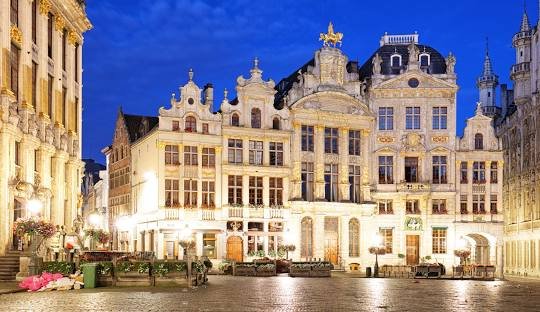Belgium, a small yet significant European country, is known for its rich history, diverse culture, and strong economic and educational systems. Located in Western Europe, it shares borders with France, Germany, Luxembourg, and the Netherlands. The country is famous for its medieval towns, Renaissance architecture, chocolates, waffles, and being the headquarters of the European Union (EU) and NATO.
Geography and Climate
Belgium covers an area of about 30,689 square kilometers and is divided into three main regions: Flanders (Dutch-speaking), Wallonia (French-speaking), and the Brussels-Capital Region (bilingual). The country has a temperate maritime climate, characterized by mild summers and cool winters. Its landscape includes coastal plains, rolling hills, and the Ardennes forest, making it a scenic and diverse country.
Education System in Belgium
Belgium boasts a well-structured and high-quality education system, divided into three linguistic communities: Dutch, French, and German. Each community manages its own education system, but they all maintain high standards.
Primary and Secondary Education
Education in Belgium is compulsory from ages 5 to 18. The primary education system lasts for six years, followed by six years of secondary education. Schools focus on academic, technical, and vocational training, ensuring students have multiple career pathways.
Higher Education
Belgium is home to some of Europe’s top-ranking universities, including KU Leuven, Ghent University, and Université catholique de Louvain. The country offers a wide range of bachelor’s, master’s, and doctoral programs in various fields. International students find Belgium attractive due to its multilingual environment and high academic standards.
Employment Opportunities and Job Market
Belgium has a strong and stable economy, with industries such as technology, pharmaceuticals, finance, and international trade playing key roles.
Employment Ratio and Job Market Trends
Belgium has a relatively low unemployment rate, typically ranging between 5-7%. However, job opportunities vary by region, with Flanders having a lower unemployment rate compared to Wallonia. Brussels, being an international hub, provides a wide array of opportunities in administration, business, and diplomacy.
Key Sectors for Employment
- Technology and IT – Belgium has a growing tech industry, attracting skilled professionals in software development, cybersecurity, and AI.
- Healthcare and Pharmaceuticals – Home to major pharmaceutical companies, Belgium offers numerous job openings for medical and research professionals.
- Finance and Banking – The financial sector is strong, with many multinational corporations and banks having their European headquarters in Belgium.
- Engineering and Manufacturing – The country has a robust manufacturing sector, particularly in automotive and chemical industries.
- Education and Research – Universities and research institutions actively seek professionals in academia and innovation.
Culture and Lifestyle
Belgium is known for its rich cultural heritage, influenced by its multilingual population and European diversity. It has a vibrant arts scene, a deep-rooted love for sports, and numerous traditional festivals.
Food and Cuisine
Belgium is world-famous for its chocolates, waffles, and beer. Other traditional dishes include mussels with fries, carbonnade flamande (beef stew), and stoemp (mashed potatoes with vegetables).
Languages and Traditions
The country has three official languages: Dutch, French, and German. This linguistic diversity is reflected in its traditions, festivals, and lifestyle. Belgium celebrates several national events, including the Carnival of Binche, Tomorrowland (a world-famous music festival), and National Day on July 21st.
Sports and Recreation
Football is the most popular sport in Belgium, with clubs like RSC Anderlecht and Club Brugge enjoying widespread support. Cycling is also a major sport, with Belgium producing many world-class cyclists. Additionally, tennis and athletics are popular among Belgians.
Tourism and Attractions
Belgium is a top tourist destination, offering a mix of historical sites and modern attractions. Some must-visit places include:
- Brussels – Grand Place, Atomium, and Manneken Pis.
- Bruges – Known as the ‘Venice of the North,’ famous for its canals and medieval architecture.
- Ghent – Home to the famous Gravensteen Castle and stunning cathedrals.
- Antwerp – A hub for diamond trade and art lovers, with the Rubens House and Antwerp Zoo.
- Ardennes – Ideal for nature lovers, offering hiking, biking, and scenic views.
Conclusion
Belgium is a dynamic and diverse country with a strong economy, a high-quality education system, and a rich cultural heritage. It offers numerous opportunities for students, professionals, and tourists alike. Whether you are looking to study, work, or explore, Belgium stands out as a destination that perfectly blends tradition and modernity.

